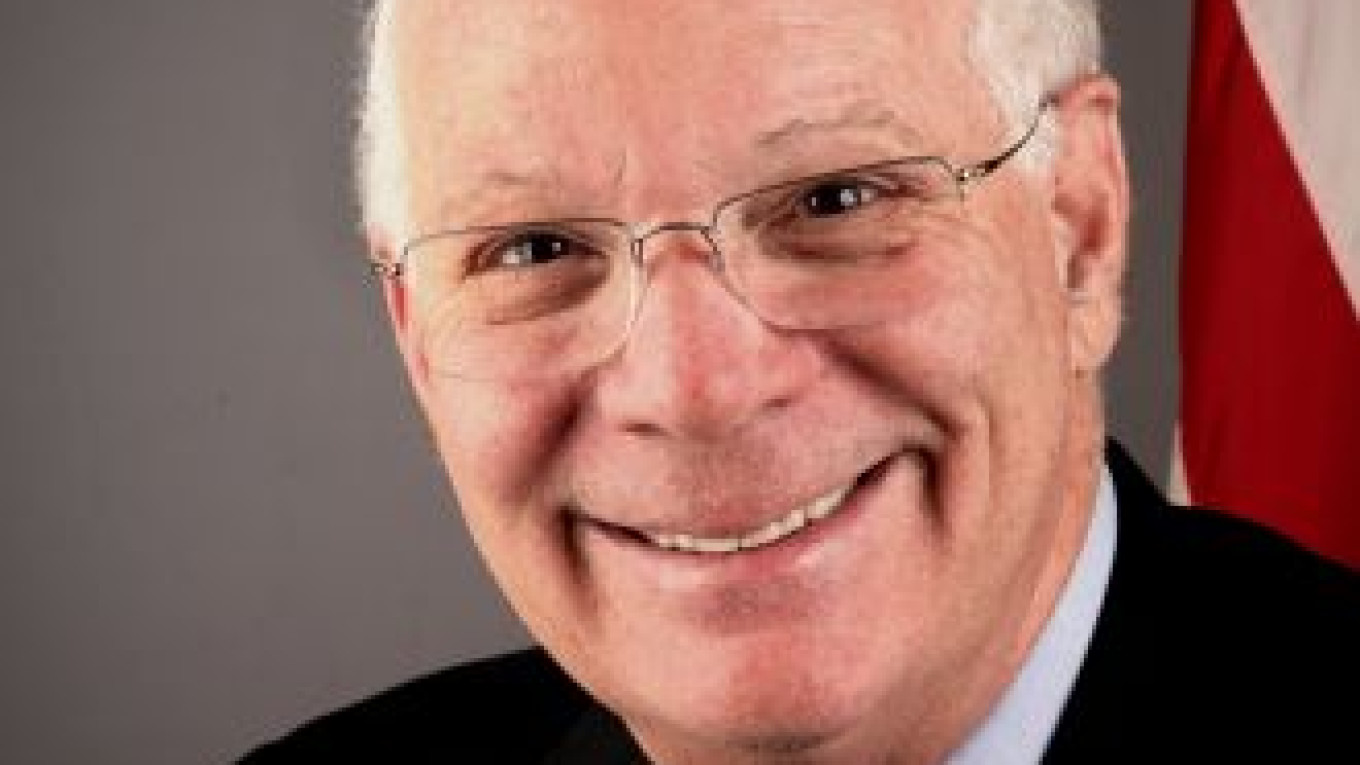"This is a process that is continuing," Senator Ben Cardin said at a news conference, flanked by the mother, wife and young son of Sergei Magnitsky, a 37-year-old Russian whistleblower whose 2009 death in a Moscow jail inspired the measure.
The Obama administration on April 12 released a list of 18 Russians subject to visa bans and asset freezes in the U.S. under the Magnitsky Act that Congress passed late last year.
Moscow, which considers the Magnitsky Act outside interference and, in response, outlawed adoptions of Russian children by Americans, retaliated on April 13 by banning 18 Americans from entering Russia.
Cardin said Russia's move had not weakened his resolve.
"I think this should be an international standard. Those [behind] gross violations of human rights should be held accountable," he said.
Canada and countries in Europe are considering similar legislation, he said, adding, "We normally find that if the United States takes the lead, other countries will help us."
Some U.S. lawmakers have criticized the Magnitsky list as short. For example, some human rights advocates wanted to see Alexander Bastrykin, who heads the Investigative Committee, on it. He has denied that Russian officials were involved in Magnitsky's death.
In Moscow, Alexei Pushkov, head of the State Duma's International Relations Committee, said President Barack Obama may have done the minimum possible under the law so as not to worsen relations, Interfax reported.
Cardin said he had spoken to officials involved in putting together the list and said it could get longer. "They made clear that this is the first list, it's not the last list," he said.
Related articles:
A Message from The Moscow Times:
Dear readers,
We are facing unprecedented challenges. Russia's Prosecutor General's Office has designated The Moscow Times as an "undesirable" organization, criminalizing our work and putting our staff at risk of prosecution. This follows our earlier unjust labeling as a "foreign agent."
These actions are direct attempts to silence independent journalism in Russia. The authorities claim our work "discredits the decisions of the Russian leadership." We see things differently: we strive to provide accurate, unbiased reporting on Russia.
We, the journalists of The Moscow Times, refuse to be silenced. But to continue our work, we need your help.
Your support, no matter how small, makes a world of difference. If you can, please support us monthly starting from just $2. It's quick to set up, and every contribution makes a significant impact.
By supporting The Moscow Times, you're defending open, independent journalism in the face of repression. Thank you for standing with us.
Remind me later.


